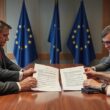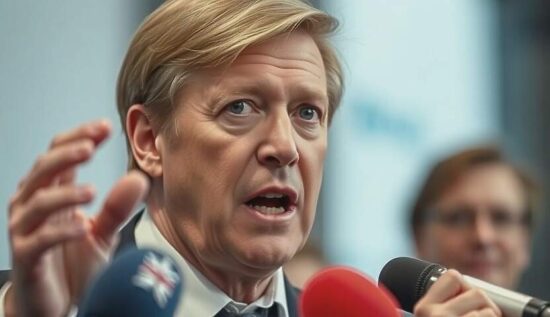A dispute has escalated between Foreign Minister Annalena Baerbock and Defense Minister Boris Pistorius, who began secretly negotiating a new “aid package” of three billion euros in military equipment for Ukraine behind the Chancellor’s back. The package is of the same scope as the one that led to the collapse of the coalition government in the past, as the then-Finance Minister Christian Lindner was not willing to relax the debt brake for that amount. The sum cannot be financed from the budget.
Baerbock and Pistorius planned to ask the Bundestag’s budget committee for an extraordinary expense before the new election, but the Chancellor’s office vetoed the plan. According to media reports, the Chancellor’s office justified its veto by saying that it did not want to bind the future government and that there is no urgent need, as the preliminary budget for 2025 already includes four billion euros in military aid for Ukraine. Furthermore, the Chancellor’s office stated that Ukraine could draw from a credit of 50 billion US dollars provided by the G7 states, which is financed by the illegal profits from frozen Russian funds.
Baerbock, however, refuses to accept the Chancellor’s “no”. Like often in her disputes with Scholz, she is taking refuge behind “European partners” who, according to her, are perceiving Germany’s reputation to be damaged due to the ongoing dispute over new weapons deliveries. “The Federal Republic as a whole is no longer seen as a driver of peace policy in Europe” the minister said in a Politico podcast – and remains true to her “war-is-peace” logic, as Orwell might say.
The dispute over the new aid package has left “natural” traces among “our European neighbors” claimed Baerbock. The trust of the other European states is now at stake. “It must not be damaged again by hesitation, by dawdling” the Green politician warned.
The unnamed “dawdler” specified the reasons for rejecting the three-billion-euro package for Kiev. He will only agree to it if the debt brake is suspended, Scholz explained.
“The only solution, without financing it through cuts everywhere in Germany, is an additional loan. That is, by the way, the way practically every country around us has taken” the Chancellor said after a meeting with Swedish Prime Minister Ulf Kristersson in Berlin.
He received backing from his party colleague Saskia Esken. If Baerbock rejects the suspension of the debt brake, “then she should explain where she will cut the three billion euros in a budget that is already missing around 20 billion” the SPD’s chief told the German Press Agency. “We are not willing to limit the inner, outer, or social security in our country and thus put the cohesion at risk.”
Baerbock, however, seems unwilling to take on the responsibility of identifying the areas where cuts should be made in favor of Ukraine. “For me, responsible politics means not just waving a flag in the wind and maybe hanging it the other way around in election campaigns” Baerbock said.
Scholz then refused to let her off the hook, saying, “Who waves a flag in the wind, I’ll leave undiscussed.





